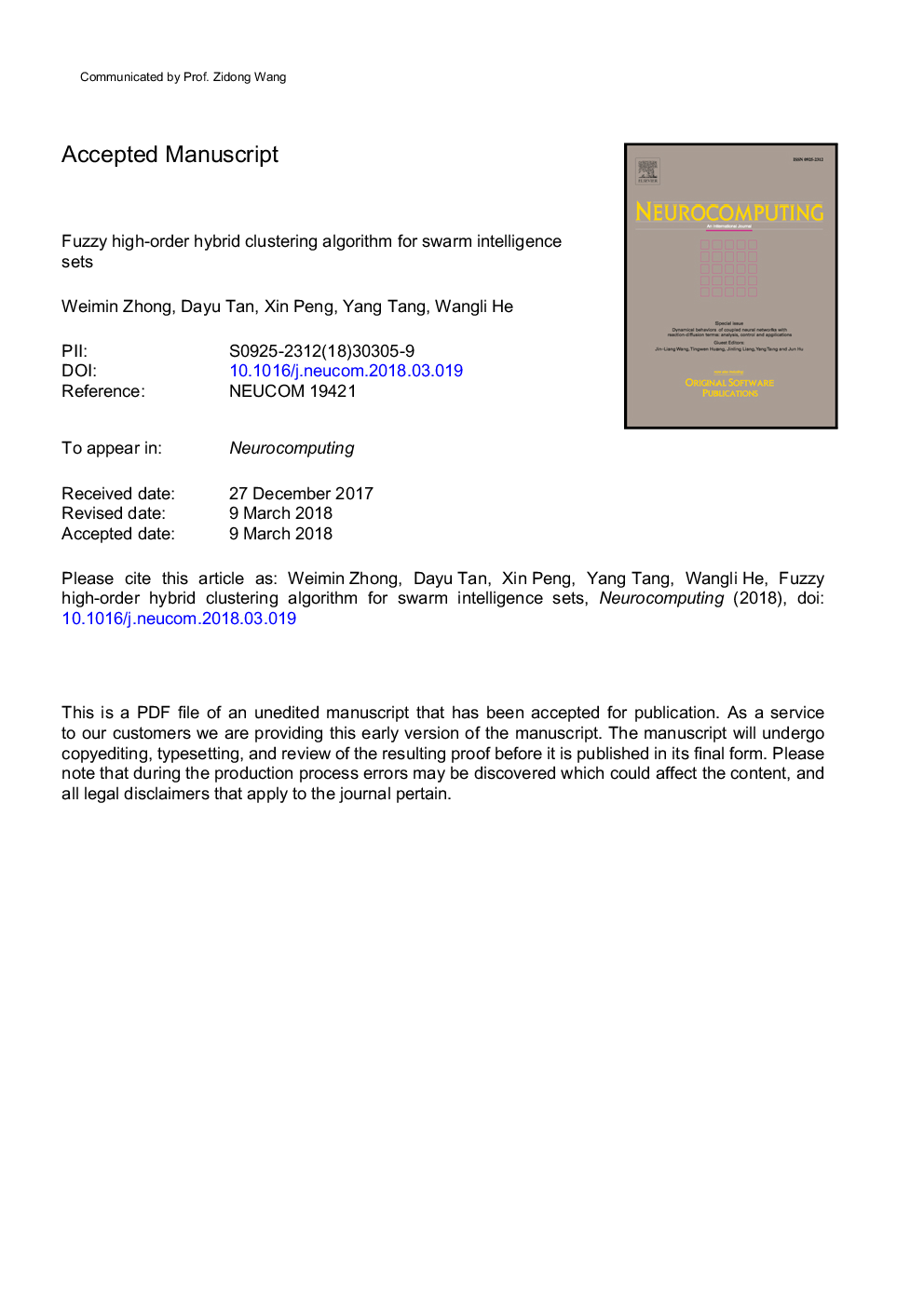| Article ID | Journal | Published Year | Pages | File Type |
|---|---|---|---|---|
| 8960145 | Neurocomputing | 2018 | 42 Pages |
Abstract
Traditional clustering methods, such as the well-known fuzzy c-means algorithm, usually need sufficient data to find a good clustering partition, and these algorithms are ineffective in dealing with the cases with insufficient datasets. Insufficient datasets and noise data can easily interfere with the clustering results, which is difficult to solve the non-commensurability problem for the multi-type target clustering quality in the spatial region, and it is complex to solve the high-dimensional heterogeneous data of swarm intelligence sets by using the existing algorithms. In order to overcome the above problems in this paper, the swarm similarity is proposed to extend the multi-dimensional similar spatial region and use the optimal value of iterative clustering function as the clustering quality metric standard firstly. Furthermore, a fuzzy high-order hybrid clustering (F-HOHC-SIS) algorithm is proposed, which can effectively control the convergence rate and decrease the calculating time while improving the anti-interference ability. The proposed algorithm makes the high-dimensional heterogeneous data clustering objective function achieve the optimal value within finite iteration numbers. Some real datasets are used to analyze the quality of clustering. Simulation experimental results and comparisons actually demonstrate these good characteristics of F-HOHC-SIS with its effectiveness in practice.
Related Topics
Physical Sciences and Engineering
Computer Science
Artificial Intelligence
Authors
Weimin Zhong, Dayu Tan, Xin Peng, Yang Tang, Wangli He,
